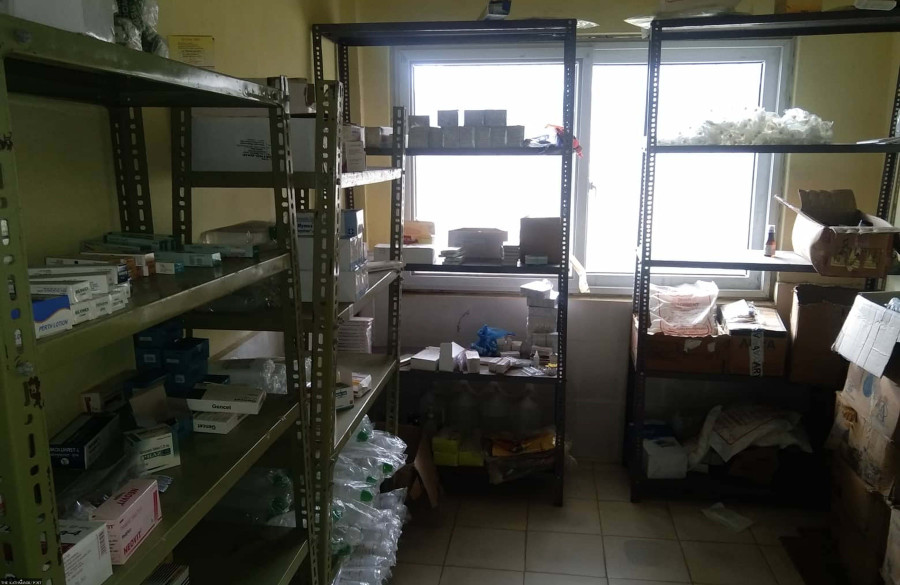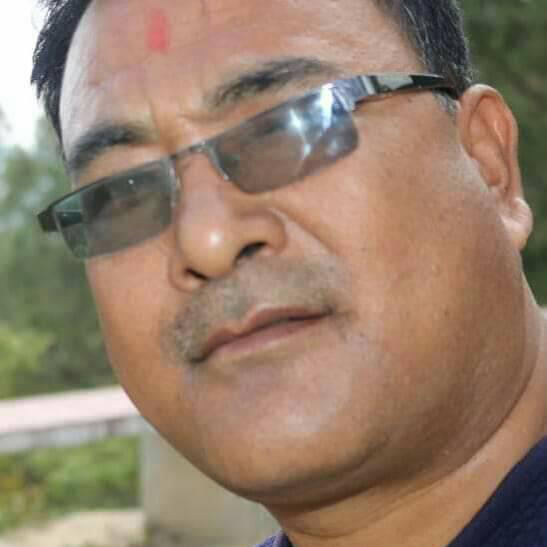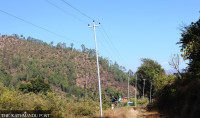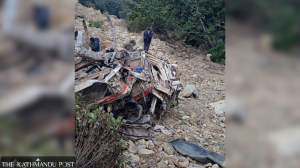Karnali Province
Health posts without medicines for two weeks
Government health facilities at Chhatreshwori Rural Municipality in Salyan have run out of essential medicines, forcing locals to seek treatment elsewhere.
Biplob Maharjan
Health institutions at Chhatreshwori Rural Municipality in Salyan are reporting a shortage of essential medicines due to procurement issues.
Seven health institutions, including one primary health centre, three health posts and three basic health unit centres, in the rural municipality have not been able to provide effective services for the past two weeks.
More than 5,000 families in seven wards of the municipality have been affected due to the shortage of medicines in the health facilities.
Dil Bahadur Pun, a 52-year-old man of Lekhpokhara in Ward No 5, went to the primary health centre on July 8 seeking treatment for stomach ache and diarrhoea, but he had to return without any medicine.
“We all go to the primary health centre for free treatment and medicines but now the health workers say there are no medicines. In my frail state, I walked for half an hour to reach the health centre but was sent home without any medicine,” said Pun. “Most of us rely on the health centre for treatment of minor illnesses but now it feels like a waste of time to come here.”
In the absence of medicines in the health centres, patients have to shell out money to buy medicines from private pharmacies. The health institutions do not even have medicines for fever, gastritis, blood pressure and typhoid, among others.
The government has provisioned free medicines for patients in all government-run health institutions.
The Ministry of Health and Population provides more than 70 different types of medicines for communicable and non-communicable diseases to district hospitals that have at least 25 beds. Patients are entitled to receive more than 60 types of essential medicines at primary health centres and 35 types of medicines at health posts free of cost.
But according to Bimal Roka, a resident of Lekhpokhara Ward No 5, patients have been forced to seek treatment at private clinics as the government health institutions do not have medicines.
“Those who can’t afford to visit private clinics are turning to home remedies,” he said.
Bir Bahadur Oli, in-charge of the primary health centre at Lekhpokhara, said that 58 types of medicines are available free of charge at the centre but there has been a shortage of over 25 types of medicines, including rehydration solution, Amlod, Typhoid and gastritis among others, for two weeks. Patients who come for treatment are now being sent to pharmacies to buy medicine.
“Sometimes patients get angry when we tell them to buy medicines outside. But they do not understand that there is nothing we can do. We have been making repeated demands for medicines from the authorities, but there has been no answer,” said Oli. “If the medicine does not arrive within two to four days, patients will suffer tremendously.”
According to Ganesh Chand, in-charge of Bhotechaur Health post, it is very difficult to treat patients without the required medicine. During the rainy season, the number of patients with fever, typhoid, diarrhoea, and dysentery increases, but the health post currently does not have the medicines to treat these ailments.
“Seasonal diseases are treatable with medicines but if not treated on time they can cause major damage to a patient's health,” said Chand.
Chand also complained that the local level has failed to provide necessary medication despite repeated requests.
According to Kesridevi Bhattarai, health in-charge of Chhatreshwori Rural Municipality, the local unit has not been able to proceed with the tender process on time. “My request to buy the necessary medicine was turned down by the rural municipality office,” said Bhattarai.
On the other hand, Pradeep Khanal, the chief administrative officer of Chhatreshwori Rural Municipality, blames the health unit of the rural municipality for failing to calculate the requirement of medicine. Khanal says the health unit did not inform the concerned authorities about the need for refills on essential medicines on time.
“We have started the tender process and we may be able to procure medicines in a few days. Urgently needed medicines will be brought from outside and delivered to the health institutions within a few days,” he said.




 12.58°C Kathmandu
12.58°C Kathmandu












